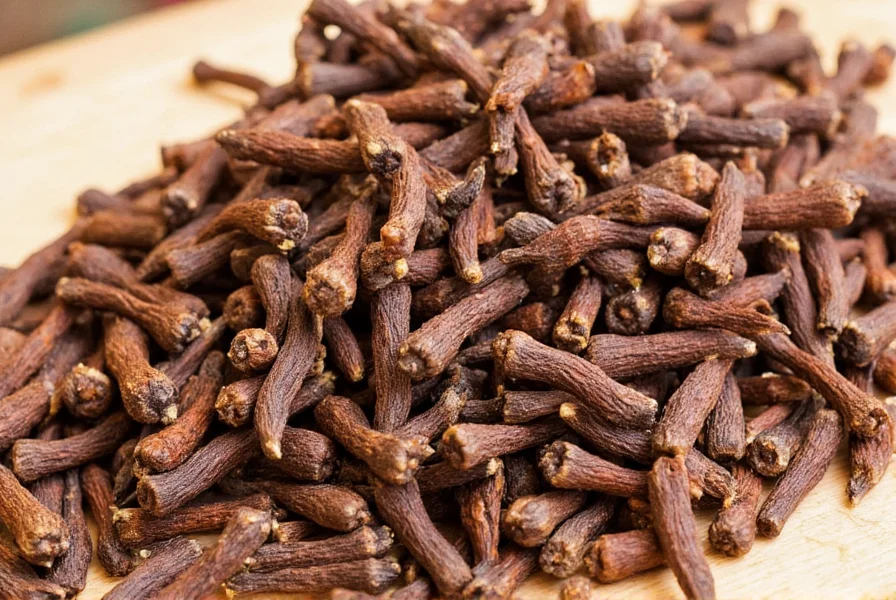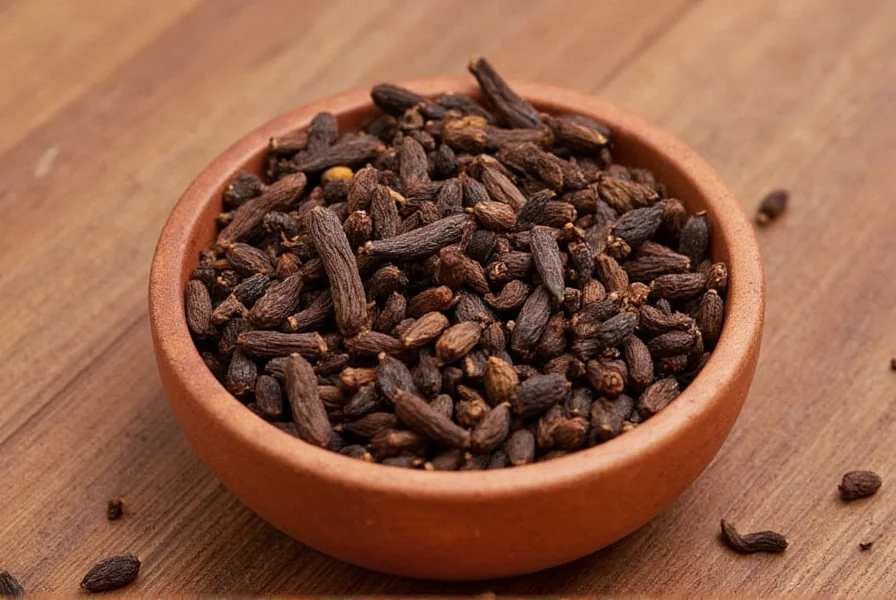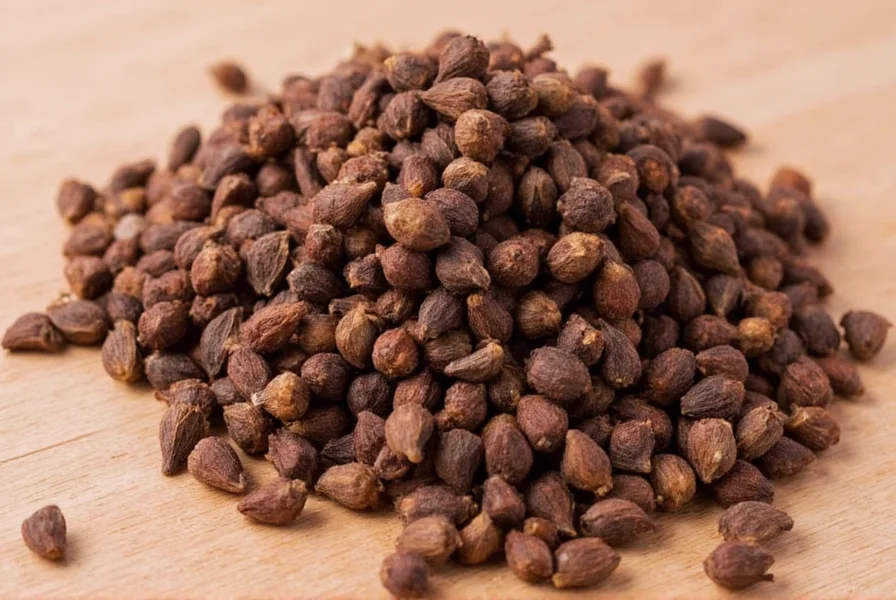These small, nail-shaped spices deliver a warm, pungent aroma and complex flavor profile that transforms both savory and sweet preparations. Understanding how to select, store, and utilize whole cloves properly separates novice cooks from seasoned culinary enthusiasts.
What Exactly Are Whole Cloves?
Whole cloves represent the immature flower buds of evergreen clove trees native to Indonesia's Maluku Islands. Harvested when pinkish-red but尚未 bloomed, they're sun-dried until their color deepens to reddish-brown with a characteristic 'nail' shape. Each bud contains 15-20% essential oil, primarily eugenol, which provides their distinctive spicy warmth and antiseptic properties.
The key difference between whole and ground cloves lies in flavor preservation. Whole cloves maintain their volatile oils for 3-4 years when stored properly, while pre-ground versions lose potency within 6 months. This makes whole cloves indispensable for dishes requiring long cooking times like biryanis, pot roasts, and mulled wines where flavor development occurs gradually.
| Characteristic | Whole Cloves | Ground Cloves |
|---|---|---|
| Shelf Life | 3-4 years | 6 months |
| Flavor Intensity | Stronger, more complex | Muted, one-dimensional |
| Best Uses | Slow cooking, infusions, pickling | Baking, spice rubs, quick dishes |
| Measurement Accuracy | Countable units | Volume-based (less precise) |
Culinary Applications of Whole Cloves
Professional chefs prefer whole cloves for specific applications where controlled flavor release matters. When simmering broths or stews, add 3-5 whole cloves per quart of liquid early in cooking—they'll gradually infuse the dish without overwhelming it. For rice dishes like biryani, toast 5-6 cloves with other whole spices before adding liquid to awaken their essential oils.
One often overlooked technique involves using whole cloves as natural flavor injectors. Stud an onion with 6-8 cloves before adding to soups or braises—the slow release creates aromatic pockets throughout the dish. Similarly, inserting cloves into baking apples or pears provides concentrated flavor bursts in each bite.

Health Considerations and Traditional Uses
While not medical advice, traditional culinary practices incorporate whole cloves for digestive support. Many cultures prepare clove tea by simmering 3-4 whole cloves in 8oz water for 10 minutes—a practice supported by research showing eugenol's anti-inflammatory properties. Always remove whole cloves before consumption as they remain hard when cooked.
When exploring how to use whole cloves for oral health, note that chewing one clove temporarily relieves toothaches through eugenol's natural analgesic effects. However, prolonged direct contact can irritate gums. For kitchen safety, remember that whole cloves stay extremely hot longer than surrounding foods—always check temperature before serving dishes containing them.
Optimal Storage Techniques
Maximize shelf life by storing whole cloves in airtight glass containers away from light and moisture. The ideal conditions are below 70°F (21°C) with less than 60% humidity. Properly stored, they maintain peak potency for 36-48 months. Test freshness by squeezing a clove between fingers—it should feel hard and release aromatic oil when pressed.
Avoid common storage mistakes like keeping cloves near stovetops (heat degrades oils) or in plastic bags (traps moisture). For long-term preservation, freeze whole cloves in vacuum-sealed bags—they'll retain 95% of flavor compounds for up to 5 years. Never store near strong-smelling spices as cloves readily absorb surrounding odors.

Common Usage Mistakes to Avoid
Many home cooks make critical errors when working with whole cloves. Never grind them in standard spice grinders—they contain tough stems that damage blades. Instead, use a mortar and pestle or specialized coffee grinder. Avoid adding whole cloves directly to food processors—they'll distribute unevenly and create unpleasant hard bits in final dishes.
When following recipes specifying 'cloves', confirm whether they mean whole or ground. Substituting incorrectly creates dramatic flavor imbalances—a single whole clove equals approximately 1/4 teaspoon ground. Always remove whole cloves before serving; they remain dangerously hard when cooked and pose choking hazards, especially for children.
Conclusion
Mastering whole cloves usage elevates your culinary repertoire through controlled flavor infusion and extended shelf stability. By understanding proper storage, measurement conversions, and application techniques, you unlock this ancient spice's full potential in both traditional and contemporary cooking. The key lies in respecting their concentrated potency while leveraging their unique slow-release properties.
Frequently Asked Questions
How many ground cloves equal one whole clove?
One whole clove equals approximately 1/4 teaspoon of ground cloves. This conversion matters significantly in recipes since ground cloves lose potency faster. For precise measurement in baking, use 5 whole cloves per 1 teaspoon ground specified in recipes.
Can you eat whole cloves after cooking?
No, you should never consume whole cloves after cooking. They remain extremely hard even after prolonged simmering and pose choking hazards. Always remove whole cloves before serving dishes. If accidentally swallowed, they typically pass through the digestive system intact but may cause discomfort.
Why do recipes specify whole cloves instead of ground?
Recipes call for whole cloves when controlled, gradual flavor release is needed during long cooking processes. Whole cloves infuse dishes slowly without becoming bitter, making them ideal for braises, stews, and pickling solutions. Ground cloves would overpower these dishes and lose complexity during extended cooking times.
How can you tell if whole cloves have gone bad?
Expired whole cloves lose their strong aroma and become brittle. Fresh cloves should feel slightly springy when squeezed and release aromatic oil. If they smell dusty or papery rather than spicy-sweet, or if they crumble when pressed, they've lost potency and should be replaced. Properly stored cloves maintain quality for 3-4 years.











 浙公网安备
33010002000092号
浙公网安备
33010002000092号 浙B2-20120091-4
浙B2-20120091-4